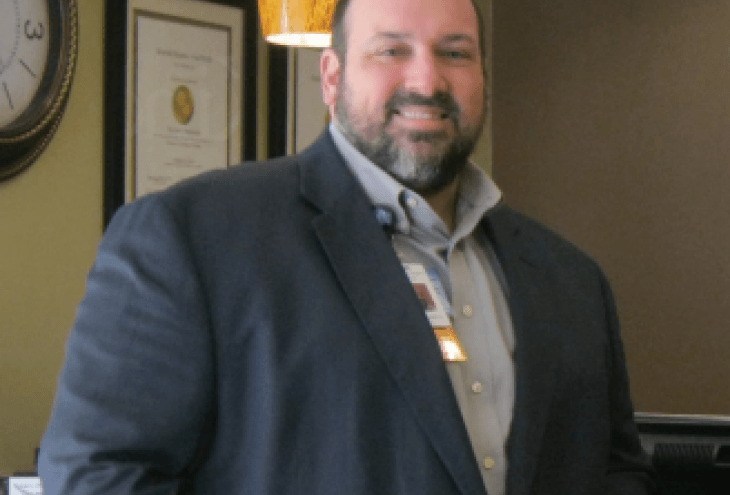Chad Lovett is happy to be back home in Fort Worth. Texas wasn’t exactly home to begin with, but it’s where, as a young adult, he began coming into his own. That was more than 20 years ago, but the recollections are still vivid. “You don’t necessarily know it at the time,” he explains, “but some of those early calls you make can really set you on your path.”
When he was 15 years old back in Warren, Ohio, Lovett tested into a new program that allowed high school students to add a vocational track to their studies. He was selected for the nursing program and, by age 17, was a licensed practical nurse. “I have to say it was really hard caring for sick people at that age,” he says. “But I made it through and was on my way.” Lovett got a job as an LPN and started attending Kent State University, where he met his wife, Shannon.
Then came a turning point: there was a promotion waiting for him in Dallas if he wanted it. “It was kind of a gutsy move as a young man,” he says, looking back. “I was leaving the world that I knew. Northern Ohio is very different from Texas, from socio-economics to racial diversity. Outside of having a job and a place to stay, my wife and I were on our own in many ways.”
But not for long. Lovett resolved to make it all work. While diving into his new job, Lovett also earned his associate degree at a local community college and transferred to the University of Texas at Arlington (UTA). He says he fell in love with Texas and the Dallas/Fort Worth area. Significantly, he met Native Americans almost everywhere he went, and found himself truly embracing his heritage for the first time. “My family has strong Cherokee blood lines on both sides,” he explains. “One side led a life of quietness about it, and the other side identified with it a little more.” But there were no cultural events or celebrations while growing up, or a sense of being part of a broader group of proud people.
That all changed for Lovett at UTA, where he joined AISES and became president of the Native American Student Association. He later took a job with the Department of Justice’s Bureau of Prisons, first working in wound care, then in religious services. “That also offered me an opportunity to really connect with people of all nations — Hopi, Navajo, Apache — so many different tribes,” he recalls.
He found mentors — or in some cases, they found him. Even after Lovett and his wife moved to Oklahoma, where he accepted his first CEO opportunity at a long-term acute care/skilled nursing campus facility in Midwest City as he worked his way up the hospital administration ranks, his UTA professors stayed in touch. By this time the couple had two sons (Ganen and Nathan, now teenagers).
Turns out that between the demands of work and real life, there was one last nagging class credit Lovett still needed to complete his UTA degree. The emails from his mentors would come through every now and then: did he have that last class he needed for his biology degree? “It was calculus, a class I had missed,” he explains. “I was hitting a glass ceiling without that degree.”
Lovett realized, with his support system cheering him on, that there was no way around this one. “I always thought my work spoke for itself. But I finally realized that sometimes a degree is simply the ticket of entrance,” he recounts. “The moment I had it, the doors opened.”
Cut to 2013 and Chad Lovett, college graduate, was on his way to Rome, Ga., as the new CEO of Kindred Hospital there. Then two years later, he and his family were headed back to Texas, where he is now CEO of Kindred Hospital Fort Worth.
That’s quite a journey, and Lovett has learned a lot along the way. “Do the things you’re afraid of, even if people tell you it can’t be done,” he advises. “Sometimes things get hard or financing school gets tough. But even if you take just one class at a time, you can get there.”
Lovett is now on track to get his MBA by mid-2016, and has received more than 20 awards for performance and service excellence. “The doors continue to be open for me now,” he says. “I am happy to share that message.”










